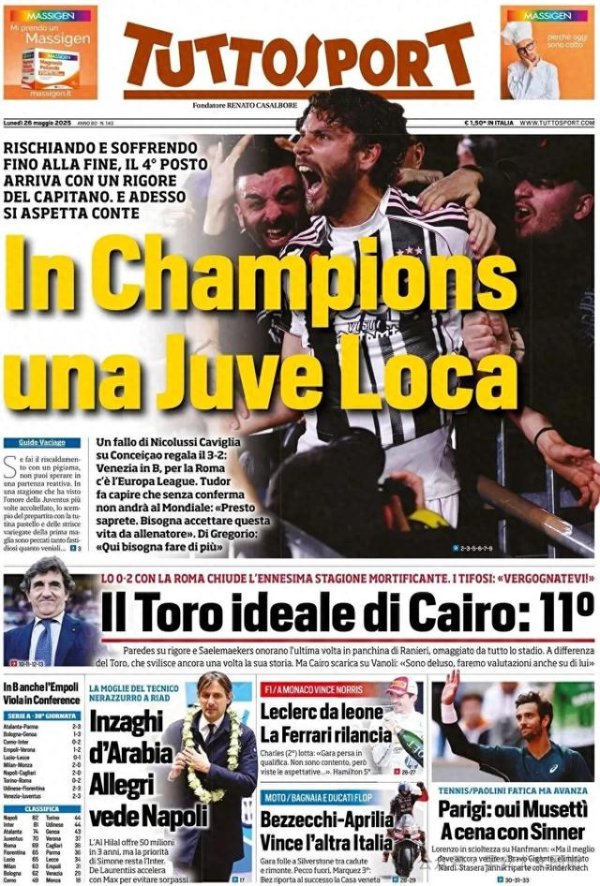HOME > Football
Barcelona 1-1 Vallecano: Frick s dilemma and a way to break the deadlock
11:02am, 2 September 2025【Football】
In a focus game in the third round of La Liga, Barcelona drew 1-1 away with Vallecano. Barcelona, who was regarded as the strength of the game, exposed many problems in this game, especially Frick's adjustment to the defense line, which not only failed to achieve the expected results, but instead made the team's defense full of loopholes. So, why did this adjustment fail? How to solve the problem of defense?
In this game, Frick made a significant adjustment to the defense line. The main central defenders Araujo and Kubasi who started in the first two games were placed on the bench. Christensen made his debut this season, partnering with Garcia with central defender, and Conde returned to the right-back position. Frick may hope that with the help of Christensen and Garcia's passing ability, the team will be smoother when defensively turning to offense, and Comte's return to the right can also enhance the offensive and defensive strength on the right.

But things went against my expectations. Judging from the competition process, this adjustment was a failure. Vallecano shot 12 times in the game and 6 shots on target. If goalkeeper Joan Garcia had not played his bravely and made key saves many times, Barcelona would have lost the game. The new defense combination makes frequent mistakes in defense, lacks tacit understanding among players, and poor communication. When Vallecano players organize attacks at the front of the penalty area, Christensen and Garcia often overlap positions and miss people, allowing the opponent to easily complete the pass or even shoot. When Conde and Barde defended on the wing, it was difficult to form an effective defensive barrier, and were caught off guard by the opponent's quick breakthrough and cross. The lack of tacit understanding and effective communication between defensive players is an important reason for the failure of adjustments. Football is a team sport, and tacit cooperation between defensive players is crucial. The new central defender combination Christensen and Garcia have played fewer games together before, and they are not familiar with each other's running habits and defensive characteristics. When facing Vallecano's offense, they cannot make a timely and unified defensive response. There is also a lack of echo between the full-back and the central defender, which leads to huge hidden dangers in the wing defense. The lack of defensive strength is also exposed. Barcelona's traditional high-post pressing defense system requires players to have high-intensity pressing ability and fast defense return speed. But in this game, the new defense players were not strong enough when executing high-level pressing, and could not give enough pressure to the Vallecano players so that the opponent could control the ball and pass the ball calmly. When returning to defense, the players' speed and position rate are not ideal, and it is difficult to block the opponent's offensive route.
Frick's tactical adjustment is too ideal and he lacks estimates of the actual situation in the game. Factors such as venue conditions in the game and the opponent's active fighting have affected the execution of tactics. When facing a team like Vallecano, which is good at defensive counterattacking, it is undoubtedly a waste of the bottom line to pursue the smoothness of the offense and ignore the stability of the defense.
Since the problem is found, how can we solve the problem of Barcelona's defense?
It is urgent to strengthen the tacit understanding between players. Use international game days and daily training time to arrange targeted defensive drills, so that defense players can constantly get in and out in simulated game scenes, familiarize themselves with each other's defensive habits and running positions, and improve communication efficiency. For example, through group confrontation training, strengthen the cooperation between central defenders and full-backs, as well as the awareness of defensive players to fill in different areas.
To improve defensive strength, we need to start from both physical fitness and tactical execution. In terms of physical training, high-intensity reversal running, sprint running and other training events in ball-friendly states are added to improve players' physical fitness reserves and continuous running ability in the game. In terms of tactical execution, the tactical points of high-level pressing are repeatedly emphasized, requiring players to quickly press the ball holder when defending, limit the opponent's time and space for the ball, and at the same time strengthen teamwork to form an effective overall defensive system.

Frick also needs to develop tactics more flexibly. When facing different opponents, make targeted tactical arrangements based on the opponent's offensive characteristics and defensive style. For example, when facing a defensive counterattack team, appropriately shrink the defense line, reduce gaps behind you, strengthen protection of the front of the penalty area, and avoid being easily counterattacked by opponents. When attacking, pay attention to rhythm control and do not blindly pursue quick ball output to ensure the accuracy and rationality of the pass.
This 1-1 draw sounded a wake-up call for Barcelona. If the defense line issue cannot be resolved in time, it will become a huge obstacle for the team to compete for the championship in the league and the Champions League. Frick and the coaching staff must find a solution as soon as possible to get Barcelona's defense back on track. Fans are also looking forward to the team's better defensive performance in subsequent games and steadily moving towards the season's goal.
source:7m cn việt namRelated Posts
- Zhan Jun: Sobo should be the most stable core for the Red Army in the new season. The most important thing is to improve the defense.
- 0-1, the former Premier League champion lost to Millwall and suffered 2 consecutive defeats in the English Championship + dropped to 10th place
- One-day Premier League news: Manchester United is accelerating the sale of backup shooters, Slott has a new target to buy defenders
- 22 seats have been reserved for the World Cup: Cape Verde, a small country with a population of 540,000, has advanced! There are 3 seats left in the African region.
- Defeat! Ruben Neves: Jota’s jersey gives me extra strength and the victory is well deserved
- Damn laughing: 1-0 in 90 minutes, Guardiola excitedly kissed the fourth official, and Manchester City was beaten 3 minutes later
- Infantino: Serie A is the league in my life, I will always pay attention to A
- 2025.08.31 Paris Football Club VS Metz Event Recommendation Analysis
- Austrian roster: Alaba leads, Sabize, Lemel, Anau, and Dansor are selected
- Real Madrid double stars Mbappe and Vinicius are in a crisis of self-confidence
Hot Posts
- Zhan Jun: Sobo should be the most stable core for the Red Army in the new season. The most important thing is to improve the defense.
- 0-1, the former Premier League champion lost to Millwall and suffered 2 consecutive defeats in the English Championship + dropped to 10th place
- One-day Premier League news: Manchester United is accelerating the sale of backup shooters, Slott has a new target to buy defenders
- 22 seats have been reserved for the World Cup: Cape Verde, a small country with a population of 540,000, has advanced! There are 3 seats left in the African region.
Recommend

Reversal of Chelsea! Flamenco fullback Wesley: Dreaming to go to Europe Currently focusing on flamenco

Star Entertainment: Player transfer directly contributes the company s after-tax net profit of 19.7561 million euros

The Premier League Opening Game is back: Tottenham plays Burnley, the battle of revenge and rebirth is about to begin

Garnacho and Chelsea have reached personal terms. Will you have good luck getting on the car?

Drapp won the Blues first goal, and his wonderful personal show shines in the Club World Cup

Achim Pong: Chelsea’s first goal for the senior team was surreal, thanks to RJ and other youth training seniors for their support

Official: Benfica 27-year-old winger Cabral joined Botafogo and participated in the FFC World Cup

Crazy Juventus enters the Champions League, waiting for Conte to return, break up with Tudor 1 million?